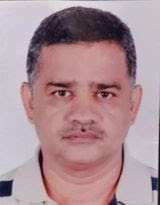1/7/2008
FYBA
The study of politics:
Definitions and nature
What is politics?
- process of decision making
- limited means and unlimited wants
- conflict is inevitable
- Violence is the only option
- Civilised societies – man is a social animal
- Groups – tribes – families – marriage – social – economic- political institutions- democratic politics-monarchies-dictators-military rule etc.
- Study of state
What is a state?
- Four essential elements – Territory, Population, Government, Sovereignty
- State has the ultimate powers – State is most powerful
What is a government?
- Government – to govern – three organs – legislature executive judiciary
- Functional division – to make, implement and interprete law
- Different types and forms of government
The input-output-feedback model
Scope
All inclusive
- State
- Political parties
- Government
- Pressure groups
- Institutions
- International relations
- Political thought
- Theory
- Comparative governments
- Political economy
- Political Sociology
- Political Geography
Approaches – Normative and Empirical
What is a social science?
- Study of society – human beings and their interrelationship – History, Political Science, Economics, Sociology, Anthropology etc.
What is a society?
- A web of relationship between individuals, groups, institutions
Normative approach
- Before 1950
- Eurocentric
- Influenced by Philosophy, History
- Influenced by values, ideals
- Formal
Empirical approach
- After 1950 – dominated by US political scientists – behavioural - वर्तनवाद
- World wide studies – particularly third world studies
- Interdisciplinary approach – Statistics (psephology), Economics, Sociology
- Emphasis on research methodology, data collection
- Value free
- Informal – emphasis on process rather than structure
SYBA
INDIAN POLITICAL SYSTEM
Indian Constitution
Basic features
- Longest written constitution in the world
- Borrowed constitution
- Parliamentary system
- Federalism – quasi federal system
- Secularism
- Independent judiciary
- Fundamental rights and duties
- Directive principles
- Amendment procedure
- Preamble
